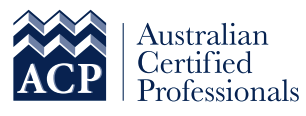Blog Layout
Do You Use Company Money Or Assets
Alan Law • Mar 16, 2021
Your company is a separate legal entity from you as a director or shareholder. The money your business earns and its assets belong to the company.
It’s important to keep appropriate records and correctly report transactions if you use company money or assets. Fox example:
• take money out of your company for yourself or your family
• receive money from it (for example, as a director, shareholder or an associate)
• use your company’s assets for private purposes
You may do it through, for example:
• salary, wages or director’s fees
• repayments of a loan you have previously made to the company
• a fringe benefit, such an employee using a company car
• dividends
• a loan from the company
Not correctly reporting and keeping appropriate records for transactions can result in an unfranked deemed dividend being included in your assessable income.
If you realize that you’re not correctly reporting these transactions or keeping appropriate records, talk to a registered tax professional and make sure that you correctly report the use of company money or assets in your next tax return.
If you have made a mistake or left something out of your previous tax returns, you can lodge an amendment.
Contact ACP Accountants today, your Sydney business accountants.

By ACP Team
•
17 Apr, 2024
From 1 April, it's a new fringe benefits tax (FBT) year. If you're an employer and have provided certain benefits to your staff in addition to their salary and wages, it's important to understand how FBT works and what is considered a fringe benefit. Perks that could attract FBT include providing employees with a work car (including dual cab Utes) for private purposes, gym memberships, or tickets to an event or show. If you provided these benefits to your staff, make sure you know how to lodge and pay the FBT. Here's 4 easy steps to help you get your FBT reporting right the first time: Identify the types of fringe benefits you provide Determine the taxable value of each fringe benefit Lodge an FBT return and pay by 21 May (for self-preparers). If your tax professional lodges electronically on your behalf, you have until 25 June Keep good records to support your calculations and FBT position If you don't have an FBT liability for the 2023–24 FBT year and you're registered for FBT, you will need to lodge a completed FBT non-lodgment advice form. If this is your first time lodging through a tax professional, make sure you contact them before 21 May to be added to their FBT client list. This ensures you’re eligible for the June lodgment and payment date. Contact us today – your Sydney small business accountants, or simply call us on 02 80467621.

By ACP Team
•
14 Mar, 2024
The Federal Government recently announced the increases in the standard concessional and non-concessional contributions caps. From 1 July 2024, the standard concessional contribution cap will increase from $27,500 to $30,000. From 1 July 2024, the non-concessional contribution cap, which is expressed as 4 times the standard concessional contribution cap, will also increase from $110,000 to $120,000. This also means that the maximum available, under the non-concessional contribution bring-forward provisions, will increase from $330,000 to $360,000. From 1 July 2024, the Total Superannuation Balance Thresholds used to determine the maximum amount of bring-forward non-concessional contributions available to an individual will also be adjusted. Running your own business and have no time to deal with tax issues? Contact ACP Accountants today on 02 8046 7621, or email us at info@acpaccountants.net.au, and we will take care of your taxation matters as they were our own.
Want more information?

© 2024
ACP Accountants
Latest news

By ACP Team
•
17 Apr, 2024
From 1 April, it's a new fringe benefits tax (FBT) year. If you're an employer and have provided certain benefits to your staff in addition to their salary and wages, it's important to understand how FBT works and what is considered a fringe benefit. Perks that could attract FBT include providing employees with a work car (including dual cab Utes) for private purposes, gym memberships, or tickets to an event or show. If you provided these benefits to your staff, make sure you know how to lodge and pay the FBT. Here's 4 easy steps to help you get your FBT reporting right the first time: Identify the types of fringe benefits you provide Determine the taxable value of each fringe benefit Lodge an FBT return and pay by 21 May (for self-preparers). If your tax professional lodges electronically on your behalf, you have until 25 June Keep good records to support your calculations and FBT position If you don't have an FBT liability for the 2023–24 FBT year and you're registered for FBT, you will need to lodge a completed FBT non-lodgment advice form. If this is your first time lodging through a tax professional, make sure you contact them before 21 May to be added to their FBT client list. This ensures you’re eligible for the June lodgment and payment date. Contact us today – your Sydney small business accountants, or simply call us on 02 80467621.
